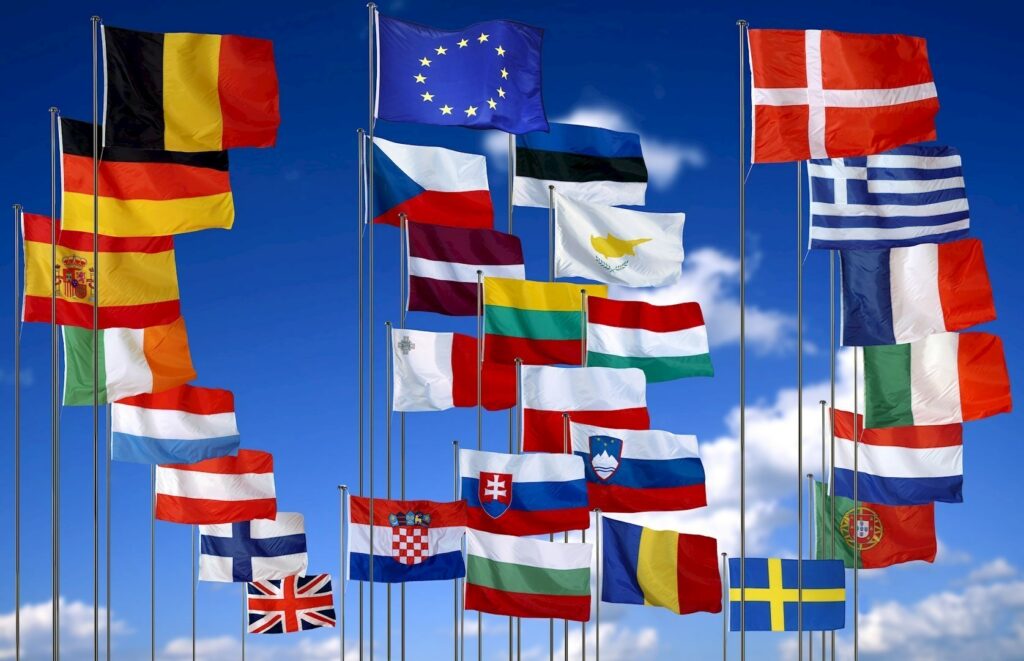Going big on biofuels: Time for the EU to prove its green credentials
The recent European elections produced what many hailed as a “green wave”, with voters choosing more candidates who promised to escalate the fight against climate change.
As the urgency of that fight is highlighted by international organisations and an unprecedented outpouring of public activism, it will be interesting to see whether the EU’s new political leaders back up their green rhetoric with the actions required to make real progress in reducing emissions.
Given the need to decarbonise transport and push EU countries to increase the share of renewables in their energy mix, that will mean a huge increase in bioenergy, and especially in sustainable solutions such as renewable ethanol, which delivers immediate emissions reduction in today’s cars and infrastructure.
In a speech to the European Parliament before its historic vote to confirm her as incoming Commission President, Ursula van der Leyen pledged she would put forward a “green deal for Europe” and said she wants Europe “to be the first climate neutral continent in the world by 2050.”
That message is in line with the Commission’s previously unveiled strategy for decarbonisation by mid-century. Achieving such a vision will require a much greater emphasis on using bioenergy. In fact, under all the scenarios for decarbonisation in the Commission’s strategy, Europe will need a massive increase in both first- and second-generation biofuels in order to make any real impact.
According to a new report from Bioenergy Europe based on European Commission statistics, the EU’s energy sector is still overwhelmingly reliant on oil, which in 2017 represented 93% of final energy consumption in transport while renewables were only about 5% of transport energy.
The message? “Biofuels such as bioethanol and biodiesel are effective at curbing GHG emissions and require no major vehicle or infrastructure changes,” the report states. “They should be allowed to play a much larger role in decarbonisation.”
Fortunately, the EU has a chance to do better, starting now, by using more crop-based biofuels such as European renewable ethanol. Even though their contribution remains limited at the EU level, crop-based biofuels are actually the main renewable energy contributor in the European transport sector.
Cars with internal combustion engines will be a majority on Europe’s roads for decades to come. Even with an increasing uptake of electric vehicles over the coming decades, the EU will need low-carbon liquid fuels—and governments willing to push higher ethanol blends like E10—to lower emissions from the majority of cars still on the roads.
The need for immediate climate action is compelling enough, but it’s not the only reason for a more dramatic EU shift to sustainable bioenergy. Policymakers also need to grow the European ethanol market to offset the effects of two recent trade decisions.
One of them was the EU-Mercosur deal, which had been bogged down in negotiations for 20 years over concerns about its impact on European farmers but was agreed at the end of June. If approved by the European Parliament and national governments, it would deal a potentially significant blow to Europe’s ethanol industry and farming sector.
The agreement would open the EU market to annual quotas of Brazilian sugarcane ethanol: 450,000 metric tons of duty-free ethanol for chemical uses, and 200,000 metric tons of ethanol for all uses at a much-reduced duty. That was a slight increase from the initial offer of a yearly quota of 600,000 metric tons at reduced duty that had been on the table until a last-minute push to finalise the agreement.
The other recent setback was the EU’s decision to repeal anti-dumping duties on fuel ethanol imports originating in the United States. It risks having serious consequences for the entire value chain of the European renewable ethanol industry – which accounts for 55,000 direct and indirect jobs in the EU. It would also affect EU climate ambitions by favouring U.S. ethanol – whose greenhouse gas savings do not match those of European ethanol.
Those developments, along with the clear message sent by European voters, make it crucial for policymakers to rethink long-term energy and climate strategy in a way that creates an EU ethanol market big enough to accommodate a flood of imports and sustain an important domestic industry.
Already, more European countries could switch to E10 ethanol blend and have an immediate impact on greenhouse-gas reduction while giving a boost to an important domestic industry.
Going big on biofuels would be a win-win for Europe, paying off with significant progress in the fight against climate change and a boost to the EU economy. It would also show that politicians are willing to back up their campaign promises with action.
This article was first published in Biofuels International magazine.
